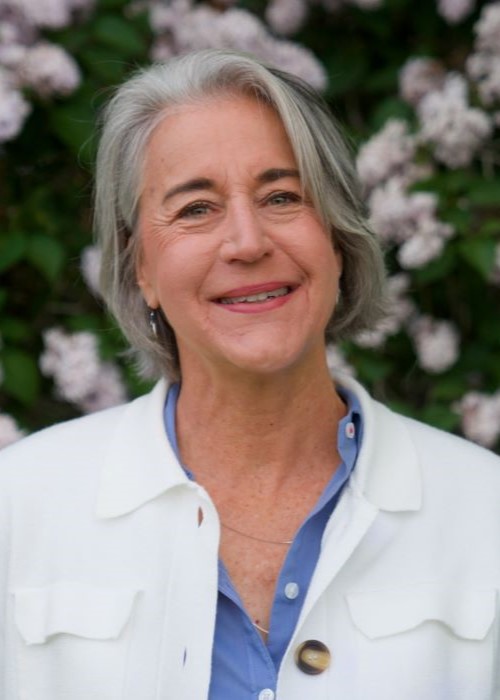In the heart of Twin Falls, Idaho, a century-old former Salvation Army building now bustles with life and the aromas of slow-cooked barbecue, made-to-order New York-style pizza, and craft espresso.
But this food hall didn’t start with a master plan. It started with a detour.
Lisa and Dave Buddecke were visiting Denver, Colorado, in 2017 when the couple found themselves at a food hall looking for something to eat. Buddecke told IW Features they ended up spending hours in there and walked away thinking: “Wasn’t this a wonderful experience? And wouldn’t this be a great place to offer for Twin Falls?”
Buddecke and her husband were already entrepreneurs with decades of business experience, but launching Idaho’s very first food hall was more than just a business decision for them. 2nd South Market became a heartfelt community revitalization project, which only happened thanks to a hotly-debated piece of American legislation: the 2017 Tax Cuts and Jobs Act.
After she and her husband returned from their trip to Denver, Buddecke, who was working as an economic development consultant at the time, happened to be writing a newsletter about “Opportunity Zones,” a concept new to her. While researching the policy, which is a little-known provision of the 2017 tax law, she pulled up a map and found that a building she and her husband were considering investing in was smack in the middle of a designated Opportunity Zone.
Opportunity Zones allow investors to defer capital gains taxes by reinvesting in designated low-income areas. But the best benefits only kick in if you genuinely commit to the community: the longer you stay, the bigger the benefits. By year 10 of an Opportunity Zone investment, capital gains taxes drop to zero.
The building the Buddeckes bought wasn’t exactly turnkey. Originally built in 1926, the structure had seen better days. But its bones were strong and its history ran deep, as it had been a blacksmithing shop and then a Salvation Army outpost. They found old horseshoes and tools, and one day during renovations, they discovered a stash spot for Prohibition-era liquor.
“We moved the wood away and realized that was a hole that was used during prohibition to store alcohol,” she said. “That was a really fun find for us.”
Rather than gutting it, the husband-and-wife duo leaned into its past. They reused wood, preserved the original rafters, and turned historic knick-knacks into decor. Buddecke didn’t want to sanitize the building into a modern, soulless space — she wanted locals to feel the legacy in the walls.
That authenticity now defines 2nd South Market, a vibrant food hall featuring pizza, barbecue, Asian cuisine, and more.
But what sets this food hall apart from the others isn’t just what’s for lunch –– it’s the overall mission behind it.
“Our goal really was to bring in small local business owners,” Buddecke explained. “We didn’t want to go to some of the larger names, the industrial names.”
Among 2nd South Market’s vendors is Chan Chan, an immigrant from Burma who co-owns Fuji Express and works around the clock to cook and serve a variety of Chinese, Japanese, and Vietnamese dishes. Since opening his restaurant in the food hall, Buddecke shared that Chan Chan has been able to purchase his first home in the United States.
“These businesses, like Fuji Express, he doesn’t have to go out and buy his own building,” Buddecke explained. “He doesn’t have to pay all the brick and mortar to run his own place. He wouldn’t have been able to do that from a cost standpoint.”
Altogether, 2nd South Market supports seven vendors and up to 55 employees annually. During the warmer months, the outdoor patio hosts live music and events, adding to foot traffic and energy downtown.
While the Opportunity Zone provision was critical to launching the Buddeckes’ project, it is just one piece of the broader 2017 tax reforms. The Tax Cuts and Jobs Act also lowered income tax rates, expanded the standard deduction, doubled the Child Tax Credit, and provided critical deductions for the many small businesses that make up the backbone of the American dream.
Now, many of those provisions are on the chopping block. If Congress fails to act before 2026, several TCJA benefits will sunset, including Opportunity Zones. But new legislation, dubbed the “One Big Beautiful Bill Act,” seeks to make these tax cuts permanent, expand upon them, and add new tax relief. Some of the bill’s goals include maintaining lowered income taxes, increasing the doubled Child Tax Credit, enhancing the increased standard deduction, and expanding small business deductions. In addition, the BBB makes tipped income and overtime pay tax-free.
The “One Big Beautiful Bill Act” passed the House in May and is currently awaiting passage in the U.S. Senate.
The economic benefits of passing this legislation are myriad, Buddecke said. Since 2017, for example, more than $100 billion has been invested in Opportunity Zones across 8,700 communities nationwide.
Stories like Buddecke’s are far from rare, but they risk becoming a thing of the past if tax reforms expire.
“We’re a husband and wife team running a small business that revitalized a forgotten part of town,” Buddecke said. “We’re not Wall Street. We’re Main Street.”
Indeed, the Buddeckes were not only able to build a business that supported their family, but they also continued to invest in their community through their job-generating food hall.
“The fact that we can hire local business folks so that they can grow their business, they can hire people, they can add more to the success of their family — that’s really our greatest joy,” she explained.
2nd South Market entered its fourth year of business in 2025. Since its opening, it has earned an Orchid Award through the Idaho Preservation Organization and received congressional recognition from U.S. Senator Risch (R-ID) for being an outstanding business.
As the Buddeckes’ story proves, passing this bill and extending these benefits is critical to economic growth. If the “One Big Beautiful Bill Act” passes in the U.S. Senate and is signed into law by President Donald Trump, countless other families like the Buddeckes can spark economic revival in their own communities.
“I think we really are feeling the reinvigoration of the American dream right now,” Buddecke said. “The American dream really is building your life, supporting your family, helping your kids to grow, and helping your community grow and expand.”











